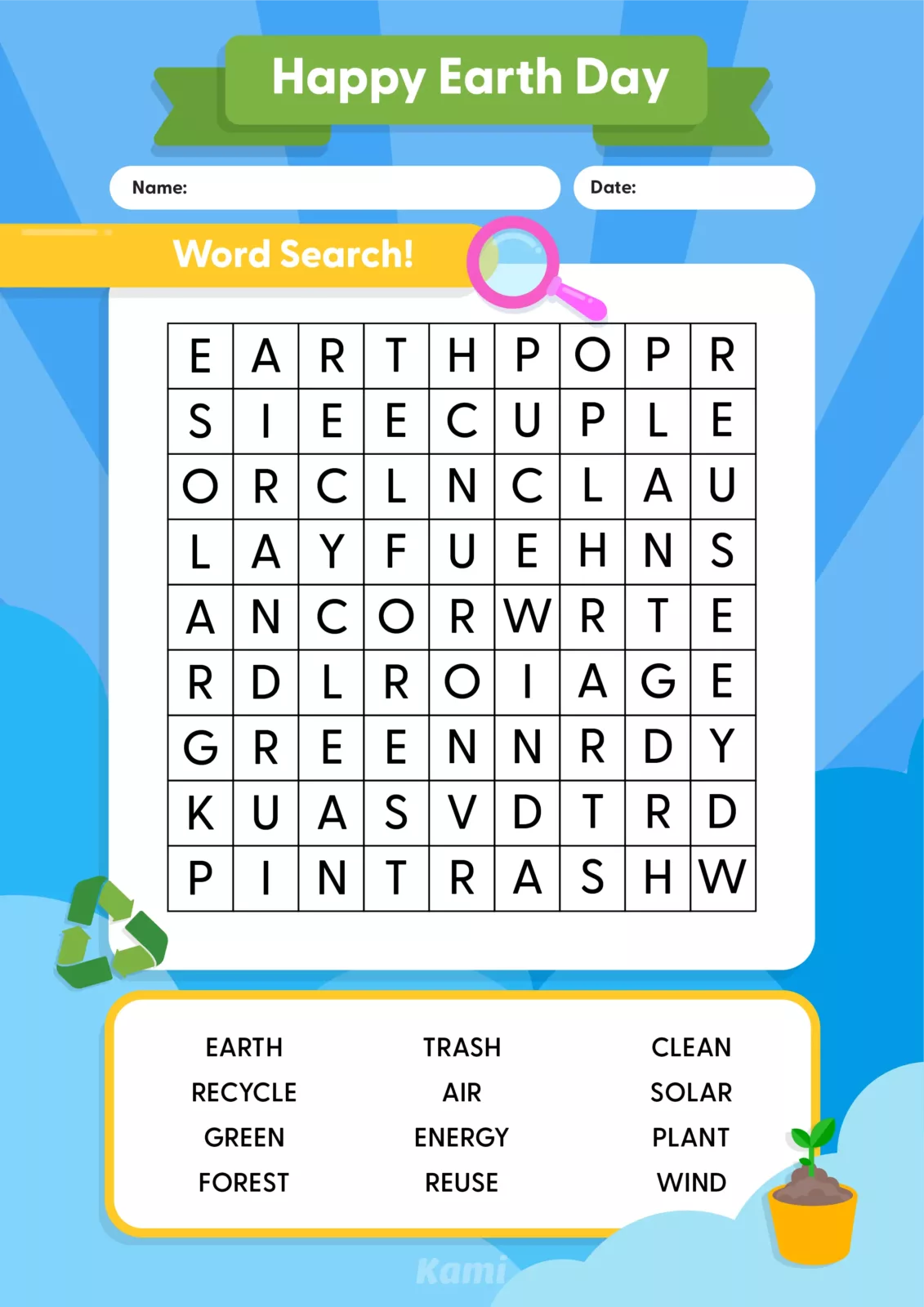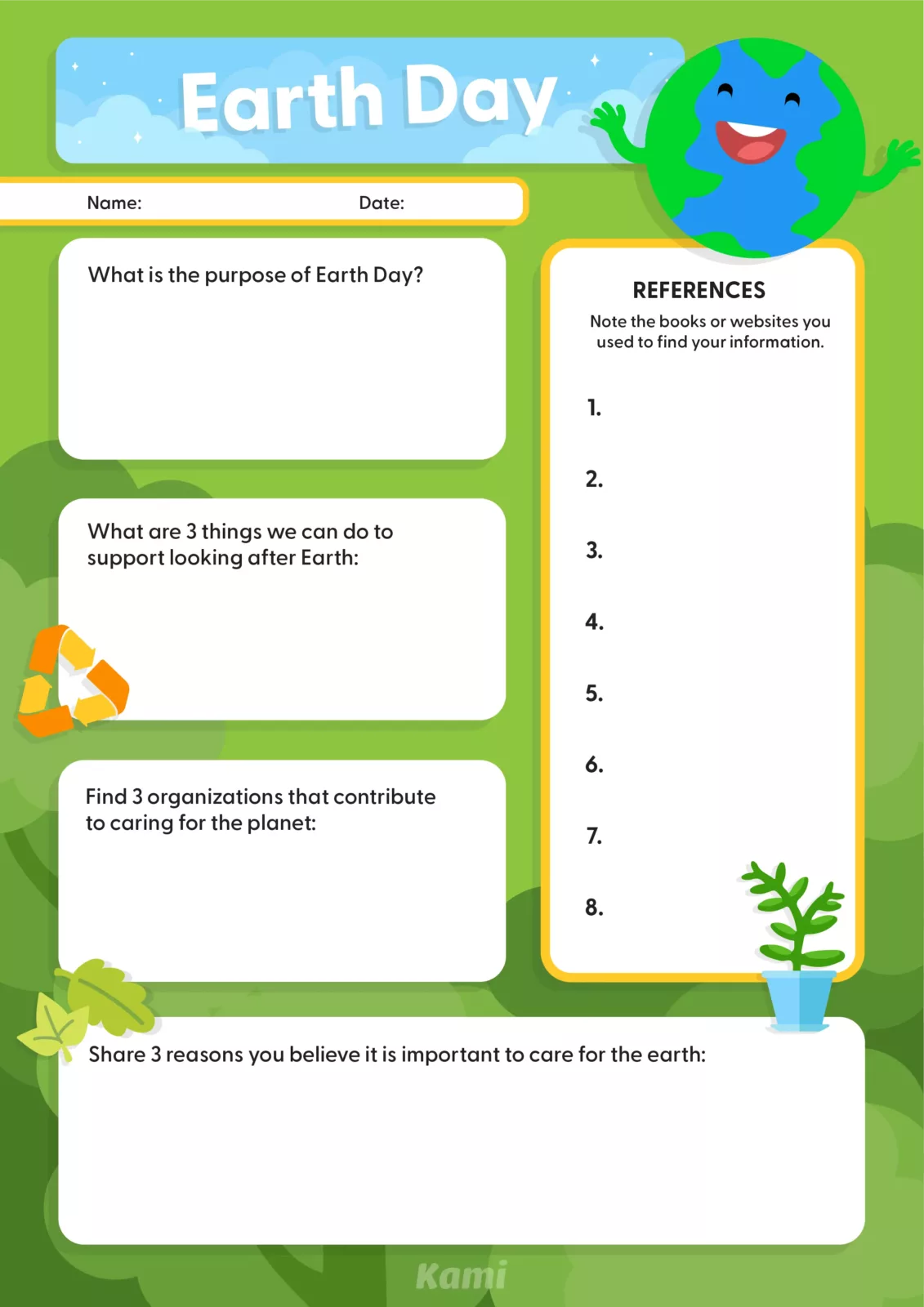Earth Day is April 22, and this year’s theme is “Planet vs. Plastics.” The goal is to “advocate for widespread awareness of the health risks of plastics, rapidly phase out all single-use plastics, urgently push for a strong UN Treaty on Plastic Pollution, and demand an end to fast fashion.”
During the day, wherever possible, we take extra time to reflect on how our actions impact the environment, what we can do to reduce that impact, and what we can change to make a positive impact.
It can be daunting for an individual or small group to feel they have to take a global issue on their shoulder. But, even though you can see the immediate impact, every minor adjustment makes a huge difference in our journey toward a more sustainable future.
Here are nine simple things you can do with your students to make a difference:
Help clean up trash
Could you organize a class trip to a nearby park or beach and pick up the trash? Some pieces could be upcycled into an art project or taken to a local recycling center!
Turn off lights and devices on the wall
When you’re not in the room or using the lights, turn them off. The same goes for any devices you have turned on at the wall – it’s estimated that leaving appliances in sleep or standby mode can contribute up to 1 ton of greenhouse gases per household to the environment (of course, it also saves money).
Walk or cycle where possible
Walking or cycling is a fantastic (and healthy) way to reduce your carbon footprint if you live close to your school! If your school still needs to, try organizing a walking bus or cycling crew.
Add plants inside
Not only can indoor plants improve the air quality, but they have also been shown to improve concentration, productivity, and memory – all of which are beneficial for the classroom, not to mention beautiful!
Level-up your garden
Getting down and hands dirty is an excellent, fun, and engaging way to educate students. Start a school veggie crop or nursery, add new plants around the field, or plant trees and garden features that will benefit wildlife, such as plants for pollinators, ponds, bird boxes, bug hotels, and so on.
Get composting
Creating a compost bin will complement your veggie garden! Pop in any lunch leftovers and use the compost as a natural fertilizer. You could also make a worm farm.
Reduce meat consumption
Add vegetarian or plant-based foods to your school’s weekly meal schedule. There are many creative ways to do this. A simple search online for easy vegetarian meals will bring up plenty of options.
Start a recycling club.
There are many communities out there that are committed to repurposing or upcycling unwanted items. Get those creative juices flowing and turn your old curtains into cushion covers, an old pair of jeans into a denim tote bag, or give those old chests of drawers a fresh lick of paint.
Save more water
This is a simple but effective tip! Turning off running taps saves more water than you think. Next time you’re brushing your teeth or washing your hands, don’t leave the tap running; only turn it on when you need it.
As mentioned, you don’t have to change your habits overnight wholly, but the little switches you start making now will add to significant results. Plus, if you start making fundamental changes with your students, they might take those new behaviors home, encouraging further impact on surrounding family members. So go on, pick something achievable and sustainable for you to do. Together, we can make a difference.
Happy Earth Day #InvestInOurPlanet!
Free Earth Day Templates
See more free templates in the Kami Library



You may also like

From ancient academies to AI-enabled classrooms

Improving AI literacy in American schools


